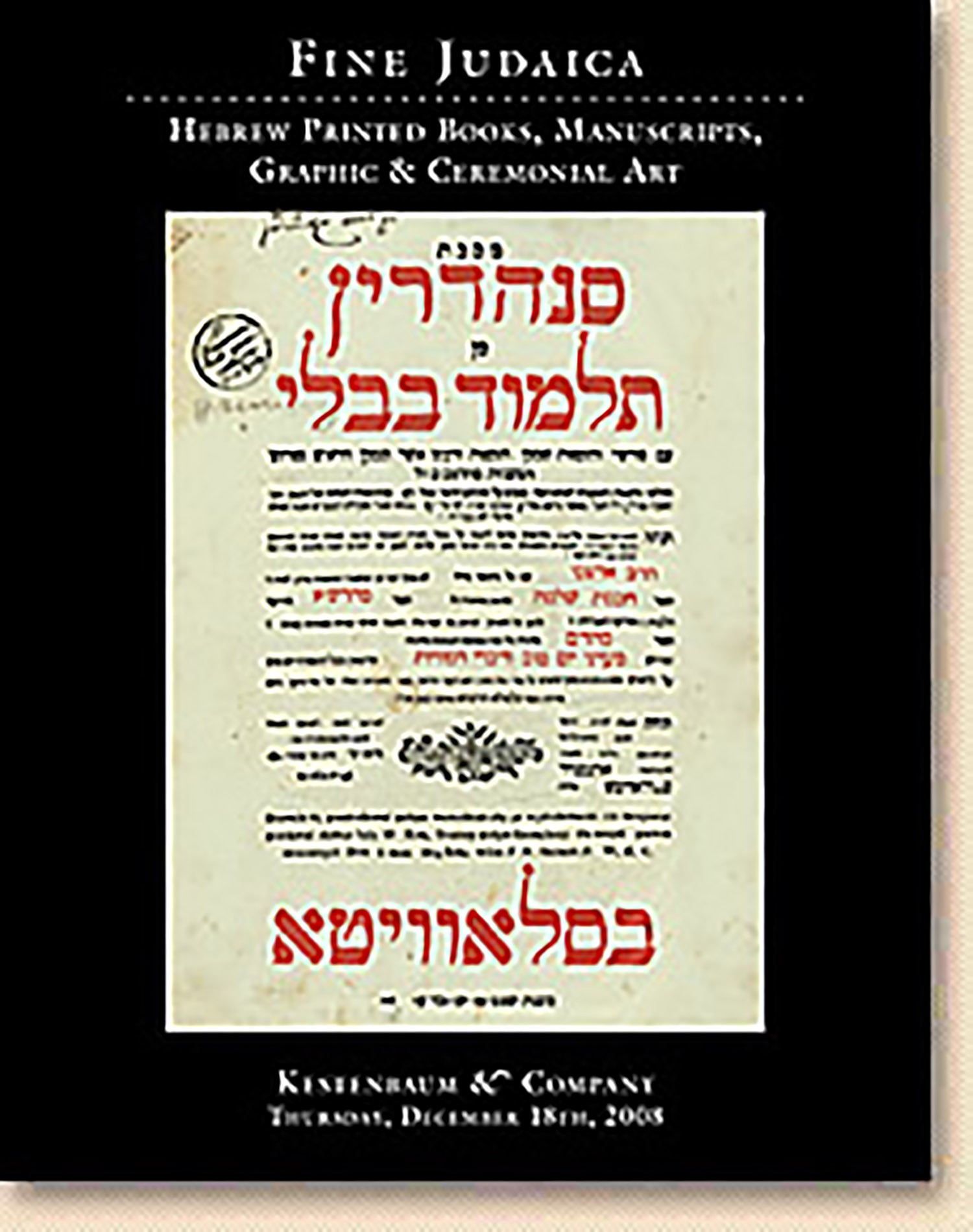“Korban Nethanel”). Pinkas of theYeshivath of R. Nathaniel Weil in Muhringen

AUCTION 42 |
Thursday, December 18th,
2008 at 1:00
Fine Judaica: Hebrew Printed Books, Manuscripts, Graphic & Ceremonial Art
Lot 323
(WEIL, NATHANIEL.
“Korban Nethanel”). Pinkas of theYeshivath of R. Nathaniel Weil in Muhringen
Muhringen: 1746
Est: $5,000 - $7,000
Historical document pertaining to the establishment of Rabbi Nathaniel Weil's Yeshiva in Muhringen - demonstrating how Rabbis and communities of the 18th-century financed the support of their Yeshivoth.
From the outset of the manuscript, the importance of Torah study is stressed inthat one should seek to marry one's daughters to Torah scholars. The second portion of the Pinkas (ff. 9, anon) contains thirteen signed statements from various community members pledging to undertake support of Yeshivah students by providing them with meals plus "a bed, chair and table." The periods of promised support range from a quarter of a year, to one month, while others promised meals only on the Sabbath.
R. Nathaniel Weil (1687-1769) the author of Korban Nethanel, was one of the most prominent Rabbinical scholars of his generation. A disciple of R. Abraham Broda, he served as a Rosh Yeshiva in Prague until the edict of Maria Theresa issued December, 1744, expelled all Jews from Bohemia. A year later R. Nathaniel was appointed Rabbi in Schwarzwald (the Black Forest district) with headquarters in Muhringen. There he established the Yeshiva described in this pinkas. In 1745 R. Nathaniel was offered the prestigious rabbinical post in Karlsruhe where he served for approximately twenty years. His famous classic, the Korban Nethanel, a comprehensive commentary on the Ro"sh, has since been incorporated in all standard editions of the Talmud.
Final leaf of this manuscript contains folk cures and remedies for various sicknesses, aches and pains that the writer heard from "Ha-Rabani...Leib MiMinsk Medinath Lita." Two other leaves in a later hand contain a record of credit and expenses from 1832
